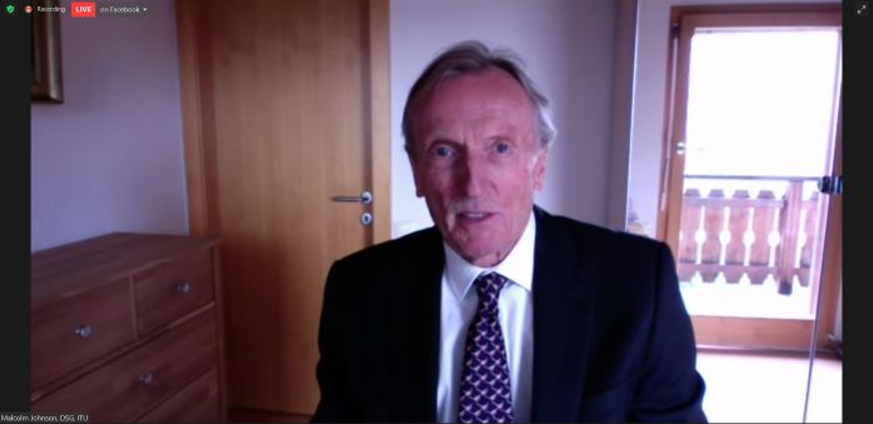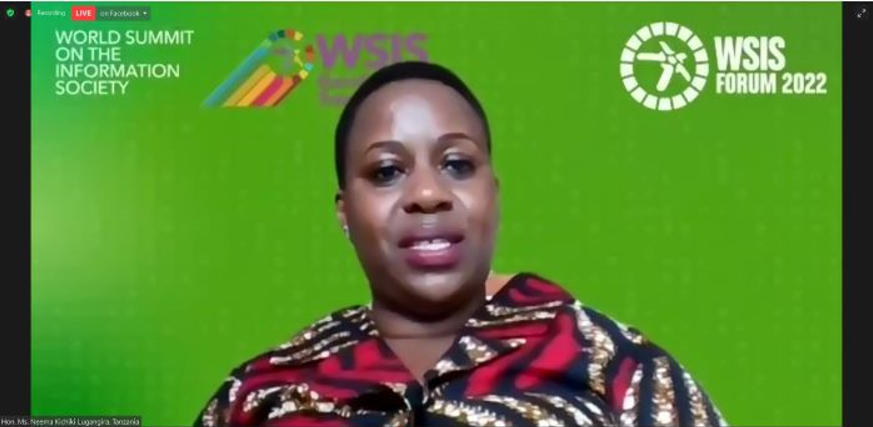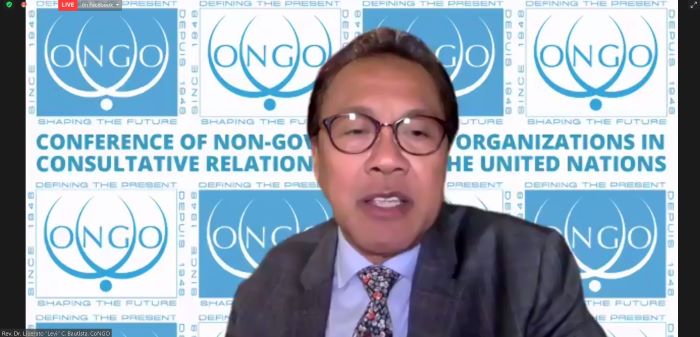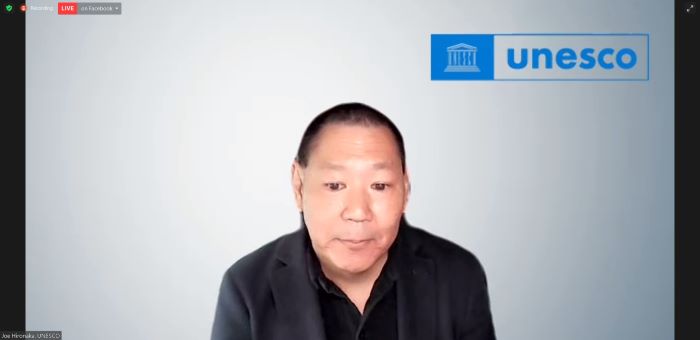STI Forum 2022 Side Event: ICTs for Well-Being, Inclusion and Resilience: WSIS Cooperation for Accelerating Progress on the SDGs
WSIS / UNGIS
Session 249
This side event on ICTs for Well-Being, Inclusion and Resilience: WSIS Cooperation for Accelerating Progress on the SDGs is jointly organised by WSIS and UNGIS on the margin of the STI Forum 2022.
Highlighting the theme of the WSIS Forum 2022 and aligning it with the theme of the STI Forum 2022 on “Science, technology and innovation for building back better from the coronavirus disease (COVID-19) while advancing the full implementation of the 2030 Agenda for Sustainable Development”, this session will focus on how the ICTs and the WSIS Action Lines can help accelerate the Sustainable Development Goals (SDGs) and to build back better after the COVID-19 pandemic. The event will also discuss ways to strengthen partnerships and digital cooperation among multistakeholders to build a sustainable future for all as envisioned in the 2030 Agenda for Sustainable Development.
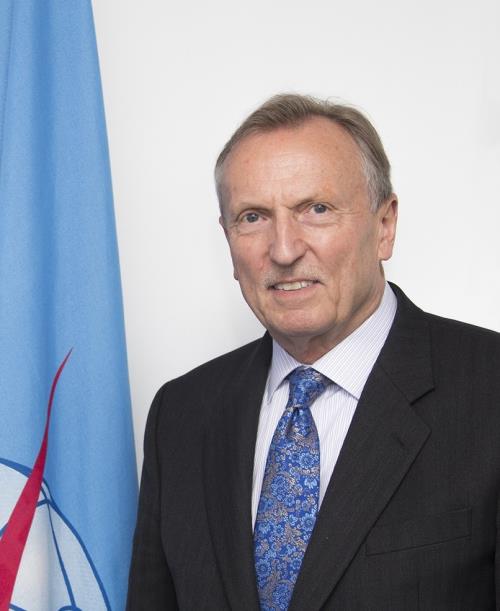
Malcolm Johnson is a seasoned information and communication technology (ICT) executive who has served in senior management positions at the International Telecommunication Union (ITU) since 2007. Prior to his election as Deputy Secretary-General, he was Director of ITU’s Telecommunication Standardization Bureau.
Earlier, he served as International Coordinator at the United Kingdom’s Office of Communications (Ofcom), with chief responsibility for UK engagement with ITU and international regulators. As Director of the UK Radiocommunications Agency until 2003, he also acted as the European Coordinator for several World Radiocommunication Conferences.
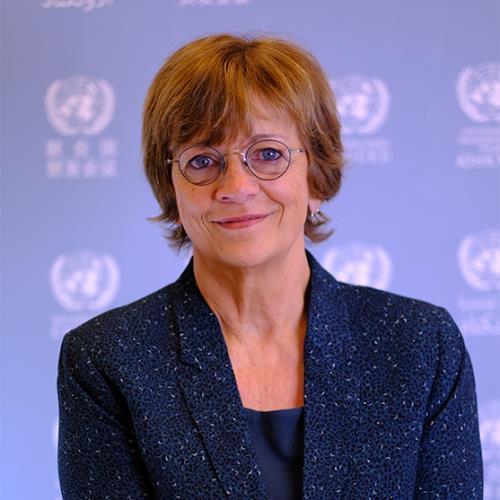
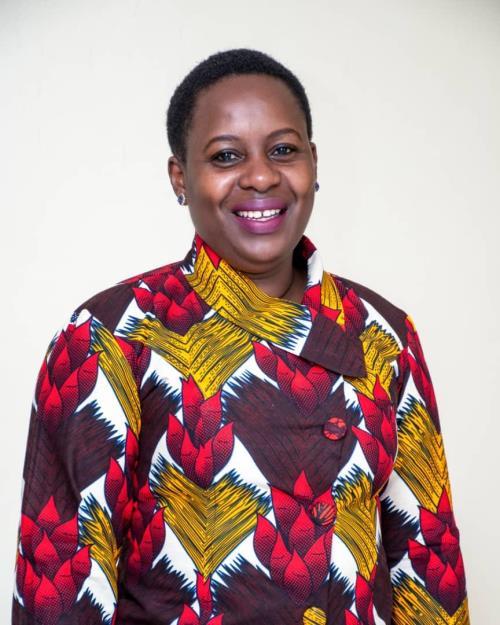
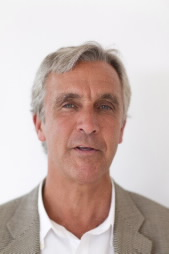
Michael W. Hodin, Ph.D. is CEO of the Global Coalition on Aging, Managing Partner at High Lantern Group, and a Fellow at Oxford University’s Harris Manchester College. He has spoken internationally on the topic of aging, including at G20, APEC, Davos, and the World Knowledge Forum (WKF). He is also a blogger on Medium.
Mike is a Member of the Council on Foreign Relations, and from 2010-2013, was Adjunct Senior Fellow with a focus on population aging. In 2013, Mike was invited by then-Committee Chairman Bill Nelson (D-FL) to lead a Members’ Roundtable with the U.S. Senate Special Committee on Aging. Mike was also the recipient of the 2012 Fred D. Thompson Award from the American Federation for Aging Research. He sits on the Boards of the Foreign Policy Association, Business Council for International Understanding, NYC Blood Center, American Skin Association, American Federation for Aging Research and Emigrant Savings Bank, where he is Chairman of its compensation committee. Mike was a member of the World Economic Forum’s Global Agenda Council on Ageing. And he sits on the Advisory Board for the Milken Institute Center for the Future of Aging.
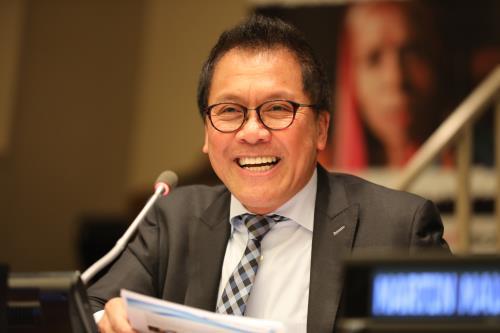
The Rev. Dr. Liberato “Levi” C. Bautista is President of CoNGO—The Conference of Non-Governmental Organizations in Consultative Relationship with the United Nations (2007-2011 and 2018-2025) and Assistant General Secretary for UN and International Affairs of the General Board of Church and Society of The United Methodist Church. Both organizations have consultative statuses with ECOSOC. He previously served as Chair of the Council of Organizations of the United Nations Association of the USA.
Bautista studied political science, history, and international studies at the University of the Philippines and religion and social and political ethics at Drew University (USA). He is a Fellow of the World Academy of Art and Science. He has travelled to some 80 countries around the world attending major United Nations, ecumenical, interreligious, civil society, and academic conferences. He participated in both the Geneva (2003) and Tunis (2005) phases of the World Summit on Information Society where he addressed the ethical implications of communications technology in the production and proliferation of information and knowledge.
Bautista has written and published essays and monographs on varied subjects, many based on his lectures and speeches on the work and role of civil society and non-governmental and grassroots organizations, in local, national, regional, international and multilateral arenas. His writings address Bautista’s concern for the organizational life of NGOs and civil society organizations characterized by consultative processes, collaborative approaches, and cooperative spirit. Such organizational values, elaborated in his writings, point to the importance of NGOs as a cohesive and effective force for change and transformation operating under proven principles of NGO good practice. Bautista’s NGO work total 44 years today.
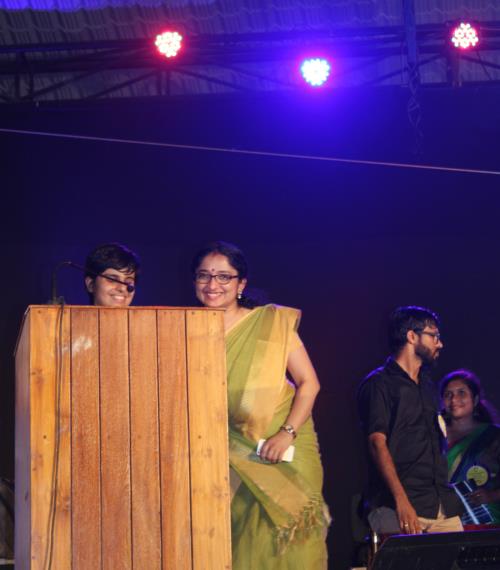
Tiffany Brar, a born fighter, did not let her disability stand as a hindrance in her moving forward.She became blind due to the sheer negligence of a doctor, soon after birth. Though her parents tried to rectify her condition, it was to no avail and she strongly believes that it is for a purpose that she is visually challenged and her disability is away to bring possibility for others like her.
She studied for her prime years in Great Britain, after which she returned to India and pursued her schooling. It was the discrimination and segregation she met on account of her disability, that instilled in her a drive and a determination to change the plight of her fellow blind brothers and sisters. She being forcefully made to sit at the back of the class and not being allowed to participate in sports,only made her more determined to make a change.
She is a motivational speaker, a special educator, a social activist, ever ready to raise her voice for her community and for other disabilities as well. Her organization has played an integral role in empowering the blind and blind women empowerment. The President himself addresses her as “THE COURAGEOUS DAUGHTER OF INDIA”, a this address to the country at the United Nations International Day for Persons with Disabilities in December, 2017 where he also presented her with the“National Award for the Best Role Model”.
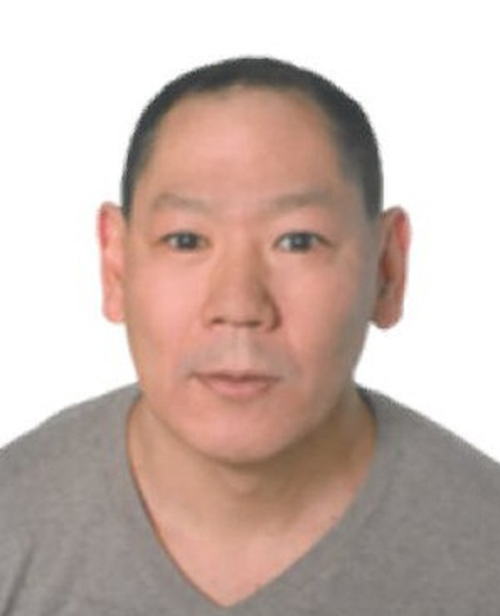
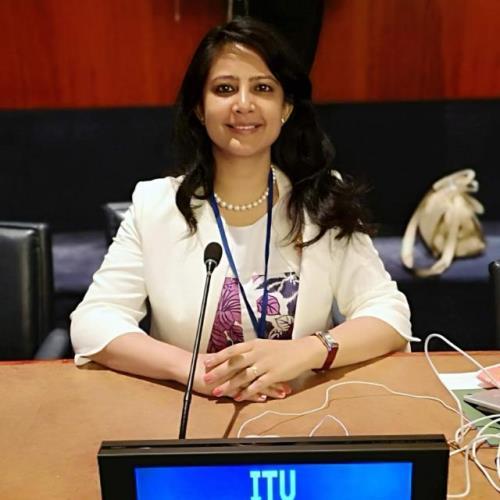
-
 C1. The role of governments and all stakeholders in the promotion of ICTs for development
C1. The role of governments and all stakeholders in the promotion of ICTs for development
-
 C2. Information and communication infrastructure
C2. Information and communication infrastructure
-
 C3. Access to information and knowledge
C3. Access to information and knowledge
-
 C4. Capacity building
C4. Capacity building
-
 C5. Building confidence and security in use of ICTs
C5. Building confidence and security in use of ICTs
-
 C6. Enabling environment
C6. Enabling environment
-
 C7. ICT applications: benefits in all aspects of life — E-government
C7. ICT applications: benefits in all aspects of life — E-government
-
 C7. ICT applications: benefits in all aspects of life — E-business
C7. ICT applications: benefits in all aspects of life — E-business
-
 C7. ICT applications: benefits in all aspects of life — E-learning
C7. ICT applications: benefits in all aspects of life — E-learning
-
 C7. ICT applications: benefits in all aspects of life — E-health
C7. ICT applications: benefits in all aspects of life — E-health
-
 C7. ICT applications: benefits in all aspects of life — E-employment
C7. ICT applications: benefits in all aspects of life — E-employment
-
 C7. ICT applications: benefits in all aspects of life — E-environment
C7. ICT applications: benefits in all aspects of life — E-environment
-
 C7. ICT applications: benefits in all aspects of life — E-agriculture
C7. ICT applications: benefits in all aspects of life — E-agriculture
-
 C7. ICT applications: benefits in all aspects of life — E-science
C7. ICT applications: benefits in all aspects of life — E-science
-
 C8. Cultural diversity and identity, linguistic diversity and local content
C8. Cultural diversity and identity, linguistic diversity and local content
-
 C9. Media
C9. Media
-
 C10. Ethical dimensions of the Information Society
C10. Ethical dimensions of the Information Society
-
 C11. International and regional cooperation
C11. International and regional cooperation
-
 Goal 1: End poverty in all its forms everywhere
Goal 1: End poverty in all its forms everywhere
-
 Goal 2: End hunger, achieve food security and improved nutrition and promote sustainable agriculture
Goal 2: End hunger, achieve food security and improved nutrition and promote sustainable agriculture
-
 Goal 3: Ensure healthy lives and promote well-being for all
Goal 3: Ensure healthy lives and promote well-being for all
-
 Goal 4: Ensure inclusive and equitable quality education and promote lifelong learning opportunities for all
Goal 4: Ensure inclusive and equitable quality education and promote lifelong learning opportunities for all
-
 Goal 5: Achieve gender equality and empower all women and girls
Goal 5: Achieve gender equality and empower all women and girls
-
 Goal 6: Ensure access to water and sanitation for all
Goal 6: Ensure access to water and sanitation for all
-
 Goal 7: Ensure access to affordable, reliable, sustainable and modern energy for all
Goal 7: Ensure access to affordable, reliable, sustainable and modern energy for all
-
 Goal 8: Promote inclusive and sustainable economic growth, employment and decent work for all
Goal 8: Promote inclusive and sustainable economic growth, employment and decent work for all
-
 Goal 9: Build resilient infrastructure, promote sustainable industrialization and foster innovation
Goal 9: Build resilient infrastructure, promote sustainable industrialization and foster innovation
-
 Goal 10: Reduce inequality within and among countries
Goal 10: Reduce inequality within and among countries
-
 Goal 11: Make cities inclusive, safe, resilient and sustainable
Goal 11: Make cities inclusive, safe, resilient and sustainable
-
 Goal 12: Ensure sustainable consumption and production patterns
Goal 12: Ensure sustainable consumption and production patterns
-
 Goal 13: Take urgent action to combat climate change and its impacts
Goal 13: Take urgent action to combat climate change and its impacts
-
 Goal 14: Conserve and sustainably use the oceans, seas and marine resources
Goal 14: Conserve and sustainably use the oceans, seas and marine resources
-
 Goal 15: Sustainably manage forests, combat desertification, halt and reverse land degradation, halt biodiversity loss
Goal 15: Sustainably manage forests, combat desertification, halt and reverse land degradation, halt biodiversity loss
-
 Goal 16: Promote just, peaceful and inclusive societies
Goal 16: Promote just, peaceful and inclusive societies
-
 Goal 17: Revitalize the global partnership for sustainable development
Goal 17: Revitalize the global partnership for sustainable development

